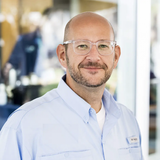Nowadays 800 million people suffer from chronic hunger and 2 billion people from major vitamin deficiencies. In 2050, the VN expects the world population to hit 10 billion. Consequently, the demand for meat, fruit and vegetables will continue to increase. But how feasible is this demand in the context of the climate crisis? Universities, businesses and labs conduct research into different technologies that could play a role in making the food industry/production more future-proof. Think of cultured meat, CRISPR-cas technology and drones that kill moths. Can these technologies be part of the solution for the worldwide food shortage? And what about the ethical questions they raise?
John van der Oost is microbiologist and professor microbiology at Wageningen University & Research. Van der Oost and his team have spent over a decade researching CRISPR-cas techniques, being one of the first worldwide providing fundamental contributions. As a result, van der Oost received the Dutch Spinoza Prize in 2018 to fund new research in this technology.
Nikita Sajeev is PhD candidate in plant physiology at Wageningen University & Research. Furthermore, as co-founder of GeneSprout, Sajeev helped to develop a platform for young plant researchers to facilitate open dialogue with policy makers and the general public on new plant breeding techniques like CRISPR.
As founder and CEO of Mythronics, Soheil Jahanshahi presents a self-driving robotic fleet that keeps an eye on the status and health of crops. Through the robot’s data collection, growers obtain suggestions on temperature, weather forecast and defects, stimulating agricultural efficiency and decreasing waste. Jahanshahi studied computer software engineering at Delft University of Technology and developed Mythronics in close cooperation with them. His personal goal is to leave a legacy behind in reducing food waste and helping modern farmers feed the growing future population.
Rolinka Kattouw takes the lead in Next Nature Academy to ensure a healthy balance between biology and technology on a societal scale. Bistro in Vitro, one of Next Nature’s projects, is a ‘restaurant of the future’ where one can speculate on the future of food, like cultured meat, in creative and innovative ways, e.g. through this cookbook.
Robert E. Jones is Head of Public Affairs for Mosa Meat, the Dutch food technology startup that pioneered the first cell-cultured beef in the world. His role is to work with stakeholders around the world that influence regulatory decisions related to Mosa Meat’s products. He came to the company with 22 years of experience in government affairs, advocacy, and communications including as a Director at the Environmental Defense Fund and as an appointee by the U.S. Secretary of Commerce.


The ultimate aim of plant breeding has always been to make plants resistant to drought and diseases. That could help eliminate hunger around the world. This is no longer a distant thought, thanks to a technology called CRISPR-Cas. Today Wageningen University & Research (WUR) announces it will provide potential partners with free licenses to work on its patented CRISPR technology. The license must be applied to gene-editing of plants for non-profit applications. “We hope this contributes to healthier, more sustainable, equitable, affordable and resilient food production for all”, says WUR President prof. dr. ir. Louise O. Fresco.

Terwijl er honderden miljoenen mensen op aarde honger lijden, wordt er nog steeds op grote schaal voedsel verspild. Thuis, in de supermarkt maar zelfs al tijdens de productie. De Delftse startup Mythronics denkt dat laatste te kunnen minimaliseren. ,,Door gewassen met onze technologie te monitoren, kunnen we de groei analyseren en daarmee oogsten optimaliseren.”

Altijd al eens vleesfruit willen proeven? U bestelt het bij Bistro In Vitro, of bij hun rondreizende ijskar.













